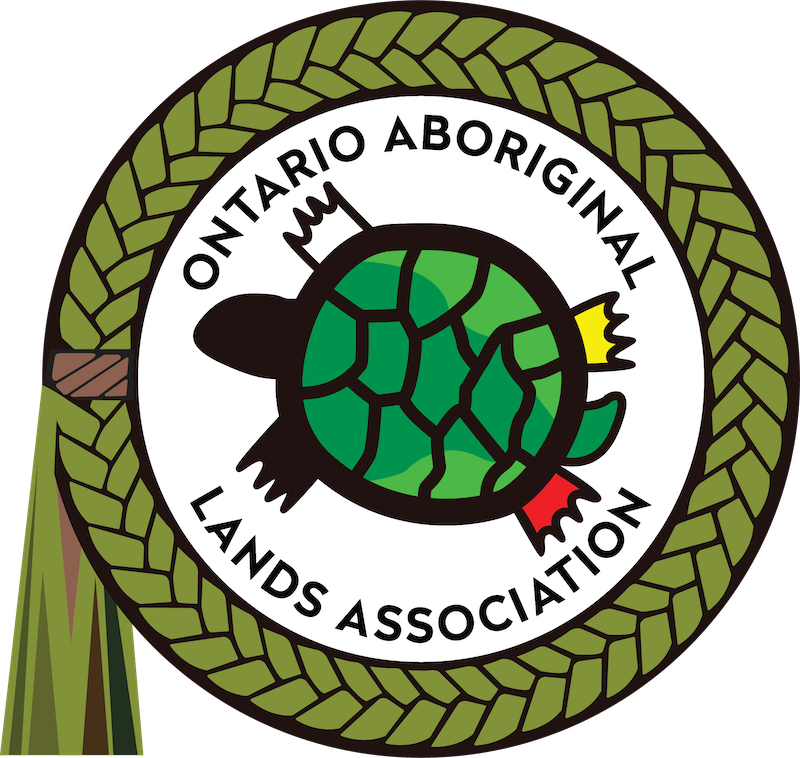
Curve Lake First Nation
In January 2021, OALA was pleased to expand its services to include an Estates unit. This section of our website is dedicated to support those managing Estates on reserve. You will find useful tools and resources to enable your community members and families to mauver the often-complex path of administering estates for First Nation members who have passed on reserve.
FAQ for Lands Professionals
Indigenous Services Canada (ISC) is responsible for estate services in all provinces. Crown-Indigenous Relations and Northern Affairs Canada (CIRNAC) is responsible for estate services in the Yukon and Northwest Territories.
If you are a member of the National Aboriginal Lands Managers Association (NALMA) you can access a copy of the Nation Estates Management Toolkit on their Online Resource Library, PeerSite
You can learn more about NALMA’s Specialized Training here
NEW! OALA Estates Unit is currently reviewing the national content and developing Ontario regional specific training material, and will have deliverable content soon. Keep checking the events and training and mentorship sections of our website.
The National Aboriginal Lands Managers Association has been honoured to host the Centre of Excellence for Matrimonial Real Property (COEMRP) which was an organization committed to supporting First Nations with the implementation of the Family Homes on Reserves and Matrimonial Interests or Rights Act (The Act). They have developed many useful resources including one specifically dealing with estates titled:
UNDERSTANDING ESTATES MANAGEMENT ON RESERVE
Under the Provisional Federal Rules as contained in the Family Homes on Reserves and Matrimonial Interests or Rights Act.
For more information, please contact Kathy McCue, NALMA MRP Program Specialist at kmccue@nalma.ca or (705) 927-5224
You can access the forms online here at:
https://www.sac-isc.gc.ca/eng/1592232608805/1592234588002#sec4
-or-
Contact our Estates Coordinator, Alison Irons-Cummings. We can send you the forms in any format that you may need.
FAQ for Individuals
An estate is all of the property and personal possessions of a person. The estate of a person who has passed may include:
- cash
- bonds and investments
- work benefits
- earnings
- pensions
- proceeds from legal actions
- insurance settlements or other settlement monies
- personal effects, like jewellery
- personal property, like vehicles and bank accounts
- lands and buildings owned both on and off-reserve
The estate of a living minor or dependent adult may include:
- cash and bank accounts
- bonds and investments
- earnings
- pension
- tax and disability benefits
- personal effects, like jewellery
- personal property, like vehicles and bank accounts
- lands and buildings owned both on and off-reserve
- insurance settlements or other settlement monies
An estate does not generally include lands or buildings owned by a First Nation or any jointly held assets if one of the holders is still alive, for example:
- joint bank accounts
- joint bonds and investments
- joint tenancy of property
Contact your local band office to see if there is a person or staff member who has been tasked with assisting membership with estate services within the community.
-or-
Email Estate Services at aadnc.estates-successions.aandc@canada.ca. To help determine who should look after the estate, ISC will ask you a few questions:
- Did your family member or friend live on a reserve?
- Did your family member or friend have a Secure Certificate of Indian Status?
- Did your family member or friend have a will?
- Who are their family members?
- Is there a death certificate? A document that shows proof of death is needed to begin settling the estate.
If ISC or CIRNAC is looking after the estate, you will be provided with the forms needed to appoint someone to settle the estate.
If a First Nations person was living off a reserve at the time of death, the estate is the responsibility of the province, territory or country where they lived.
Find out more:
- Alberta: What to do when someone dies
- British Columbia: What to do when someone dies
- Manitoba: Dealing with death
- New Brunswick: Service New Brunswick Vital Statistics Unit
- Newfoundland & Labrador: Government Services Vital Statistics Division
- Northwest Territories: Registrar General of Vital Statistics
- Nova Scotia: Nova Scotia Vital Statistics
- Nunavut: Nunavut Vital Statistics
- Ontario: What to do when someone dies
- Prince Edward Island: Vital Statistics
- Quebec: What to do in the event of a death
- Saskatchewan: Dealing with death
- Yukon: Vital Statistics
You may also wish to visit Canada Revenue Agency: What to do following a death.
Yes – Under the Indian Act, ISC or CIRNAC is only involved with estates for people “ordinarily resident” on a reserve.
“Ordinarily resident” on a reserve means that an eligible First Nations person usually lives on a reserve and does not maintain a primary residence off a reserve. They may, however, temporarily live off a reserve for education purposes or to obtain care or services not available on a reserve.
Executor
When a person makes a will, they name someone or a group, such as a law firm or a bank, to be responsible for managing the estate once they have died. That person or group is known as the executor.
The executor manages all of the financial and legal matters of the estate and ensures that the will is carried out.
Administrator
If a person living on a reserve dies without a will or does not name an executor in their will, ISC or CIRNAC will appoint someone to manage the estate. The appointed person is known as the administrator and has the same duties as an executor.
If no one is willing or able to manage the estate, ISC or CIRNAC will act as the administrator.
If you have been appointed as an administrator or executor, visit Some good practices of an administrator.
An estate can be managed by an executor or an administrator.
A living minor or dependent adult can also have an administrator for their estate.
The executor or administrator is responsible for managing all of the financial and legal matters of the estate and is accountable to the beneficiaries named in the will or to the heirs.
The duties differ depending on whether:
- the estate is for someone who has passed
or
- the estate is for a living minor or dependent adult
The duties of an executor or administrator for the estate of someone who has passed include:
- identifying and protecting the estate property and belongings
- claiming work benefits
- providing a full report to the beneficiaries or heirs on what has been done
- paying the estate debts, including funeral expenses
- filing tax returns
- distributing the estate assets according to:
- the will
or
- the provisions of the Indian Act when there is no will
The duties of an administrator for the estate of someone who is living include:
- identifying and protecting the estate property and belongings
- purchasing necessities for the minor or dependent adult and providing an allowance as required
- consulting with the person responsible for looking after the everyday wellbeing of the minor or dependent adult
- paying bills
- settling debts
- making arrangements for the person’s business
- looking after any pension or benefit concerns
- filing tax returns
- providing a full report regarding what has been done each year upon request from:
- a member of the family
- the minor
- the dependent adult
- the guardian of the minor or dependent adult
- ISC or CIRNAC
ISC or CIRNAC will:
- review and address concerns and complaints about the management of the estate
- review the management of the estate upon request from the family
To find out more about the duties of an executor or administrator and how to properly manage an estate, visit What does an administrator do once appointed.
ISC or CIRNAC is required under sections 42 to 50(1) of the Indian Act to manage the estates of people who were, or could have been, registered under the act and usually lived on a reserve. If you think the person who has died could have been entitled to registration under the act, contact Public enquiries.
Estate administration is a private family matter and ISC encourages family members or their nominees to manage the estates of those who have passed.
As part of estate services, ISC or CIRNAC:
- appoints estate executors or administrators
- approves wills so they can take effect
- transfers reserve lands from the estate to the beneficiaries or the heirs
- determines the heirs if a person dies without a will
- serves as administrator if no one is willing or able to settle the estate
- if serving as administrator, distributes estate assets according to the will or the provisions of the Indian Act when there is no will
If the estate cannot cover funeral expenses, contact Estate Services at aadnc.estates-successions.aandc@canada.ca.
Under section 52 of the Indian Act, ISC or CIRNAC may help manage the estates of minors registered under the act who usually live on a reserve, including:
- minors who are entitled to be registered under the act
- minors whose names are on a First Nation membership list or could be added to a First Nation membership list
- minors whose parents are registered under the act
Under section 51 of the Indian Act, ISC or CIRNAC is required to manage the estates of people who currently cannot manage their financial or legal affairs and usually live on a reserve, including:
- those who are registered under the act
- those who are entitled to be registered under the act
- those whose names are on a First Nation membership list or could be added to a First Nation membership list.
Family members are encouraged to manage the estates of minors or dependent adults.
A minor is someone who is under the age of majority in the province, territory or country where they live. For example, in Quebec a minor is anyone 17 or younger, while in British Columbia a minor is anyone 18 or younger.
A minor can have an estate, such as property or possessions. Usually a parent or guardian is responsible for the management of the estate because the minor is not of legal age to do so.
ISC or CIRNAC can help only help manage the estates of minors in rare circumstances.
ISC or CIRNAC’s ability to help manage the estate of a minor is outlined in section 52 of the Indian Act and is considered discretionary. This means that ISC or CIRNAC only steps in when necessary, such as when the parent or guardian is unable to manage the estate or upon request.
ISC or CIRNAC’s goal when helping to manage the estates of minors is to do what is in the best interests of the minor.
The accounts ISC or CIRNAC creates to manage the estates of minors are known as individual trust accounts.
A dependent adult is someone who cannot currently manage their financial or legal affairs. This could include people with dementia or other medical conditions that affect their mental capacity.
ISC or CIRNAC can only help manage the estate once the adult has been officially diagnosed as incapable of managing their own financial or legal affairs.
Diagnosis must be done by a provincial or territorial authority, such as:
- a doctor or other certified health professional
- a capacity assessor employed by the province, territory or country in which the adult lives
- a court of law
The person appointed as administrator of property for a dependent adult can only help with managing personal property and effects, such as money, lands and debts.
Authority for decisions relating to personal care is the responsibility of the province, territory or country where the dependent adult lives.
To find out about services available in your province or territory, contact:
Resources

Download the Guide here:
Estate Planning is a very important act that shows you care for the loved ones you are leaving behind. Once completed, the intended use of this guide is to support your estate executor or administer in carrying out your wishes upon your passing. It is a supplementary guide to be used in tandem with a legal Will. It is not meant to replace legal advice or to be used exclusively as your only mechanism for estate planning. It is best practice to ensure you have a current and legal Will that is accessible by your named executor(s).
A known contributor to the stress of processing an estate is locating key documents and important information. Our hope is that this planning guide relieves some of that stress as all of your information can be located in one convenient place. Keep in mind that there may be some very confidential information contained in this guide and it should be protected and stored with care.
Tools
Coming soon!
Forms
Coming soon!
Upcoming Training Opportunities:
In addition to providing one-on-one support, OALA’s Estates Unit offers Ontario-specific Estates Management Toolkit training sessions and estates-focused Peer Support Sessions to members. To view OALA’s upcoming training opportunities, please see OALA’s 2024-2025 Events Calendar.
Members of NALMA can access a copy of the Estates Management Toolkit by logging into PeerSite.
Contact
Do you have an estates related inquiry?
Please reach out to Alison Irons-Cummings, Estates Coordinator at estates@oala-on.ca.

